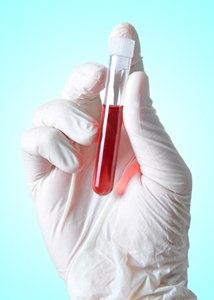Wouldn’t it be incredible if your doctor already knew your risk for developing complications at the start of your pregnancy? What may seem futuristic to us is already a reality for countless Australian women. Researchers at the University of Adelaide’s Robinson Research Institute have created a set of calculations that pinpoint a woman’s risk for four potentially fatal pregnancy issues –
preeclampsia, preterm birth, intrauterine growth restriction and gestational diabetes. These tests have proven astoundingly accurate, improving outcomes for both mom and baby.
In Australia alone, more than 25 percent of first-time moms experience one of these complications – and with serious consequences, too.
“The health issues for babies range from childhood obesity, mild learning and behavioral problems to severe disabilities such as cerebral palsy, intellectual handicap and blindness or even death. The women and babies affected by these complications are also at higher risk for developing adult onset diseases, including cardiovascular disease and Type 2 diabetes,” Professor Claire Roberts, a lead researcher for the study, said in a statement.
With this new screening test and a doctor’s ability to act fast, time is truly on a mom-to-be’s side. If a pregnant woman shows a high risk of developing a certain complication, her health care team can take swift measures to lessen its severity – or even prevent it entirely. In the case of preeclampsia, for example, this new screening is revolutionary. Currently, there’s no test for this very serious, potentially fatal disease. Instead, doctors rely on a serious of symptoms, from headaches and the presence of protein in the urine, to diagnose the disease once it’s already an issue. Now, using DNA sequences, clinical, socioeconomic, lifestyle and family history data, this test’s algorithms have successfully identified the risk of complications for more than 3,200 women. And all it takes is an extra blood draw at your 12 week appointment.
So what does this mean for women in the U.S.? “We want to see this test rolled out as part of routine screening for all women, no matter where they are,” said Roberts. “The next step is to test women right across Australia and commercialize the algorithms so that they can be offered to pregnant women by clinicians from all over the world.”
What do you think of this new scientific development? Would you submit to yet another round of testing if such a thing were already available here in the U.S.? Join in on the conversation and share your thoughts with other expectant moms in the comments below.
